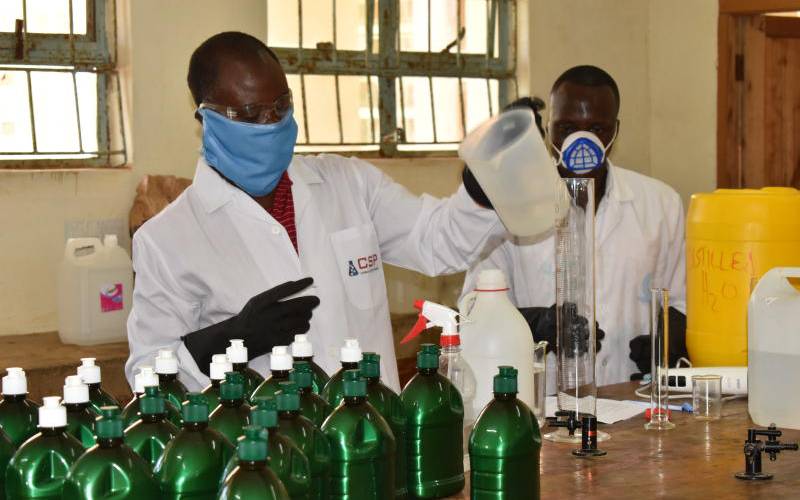×
The Standard e-Paper
Smart Minds Choose Us

Masinde Muliro University's chief technician Manoah Opanga (left) and Douglas Ndayala at the institution's production room where they have started manufacturing sanitizers, detergents, and hand-washing soaps. [Mumo Munuve, Standard]
A ventilator, a coronavirus mass testing device and protective gear are among the developments by universities to support efforts to defeat the pandemic.